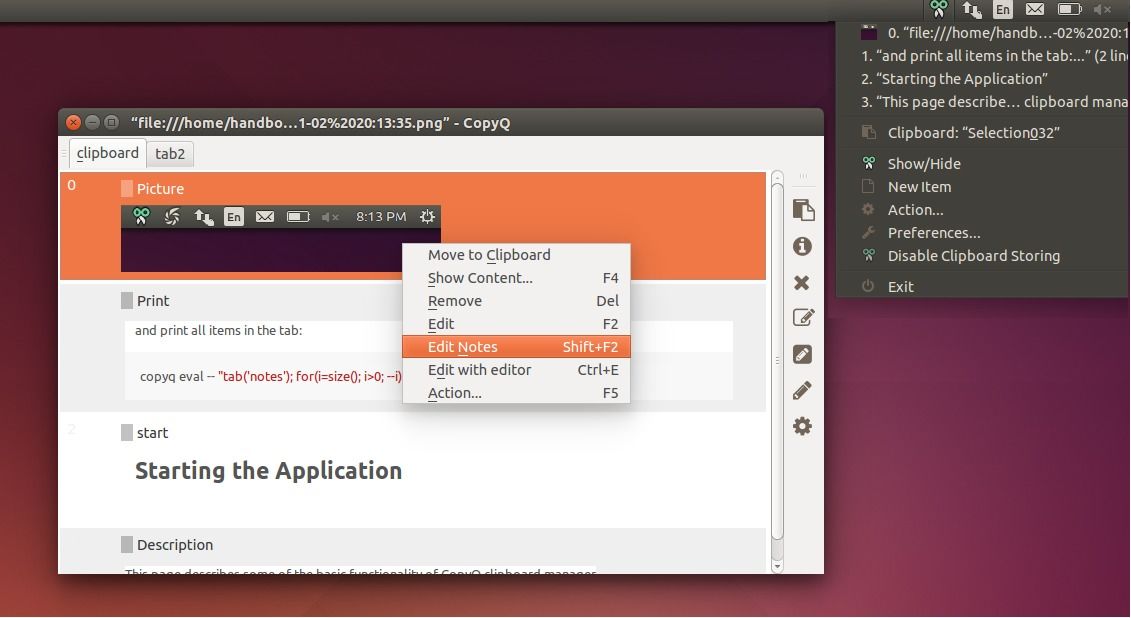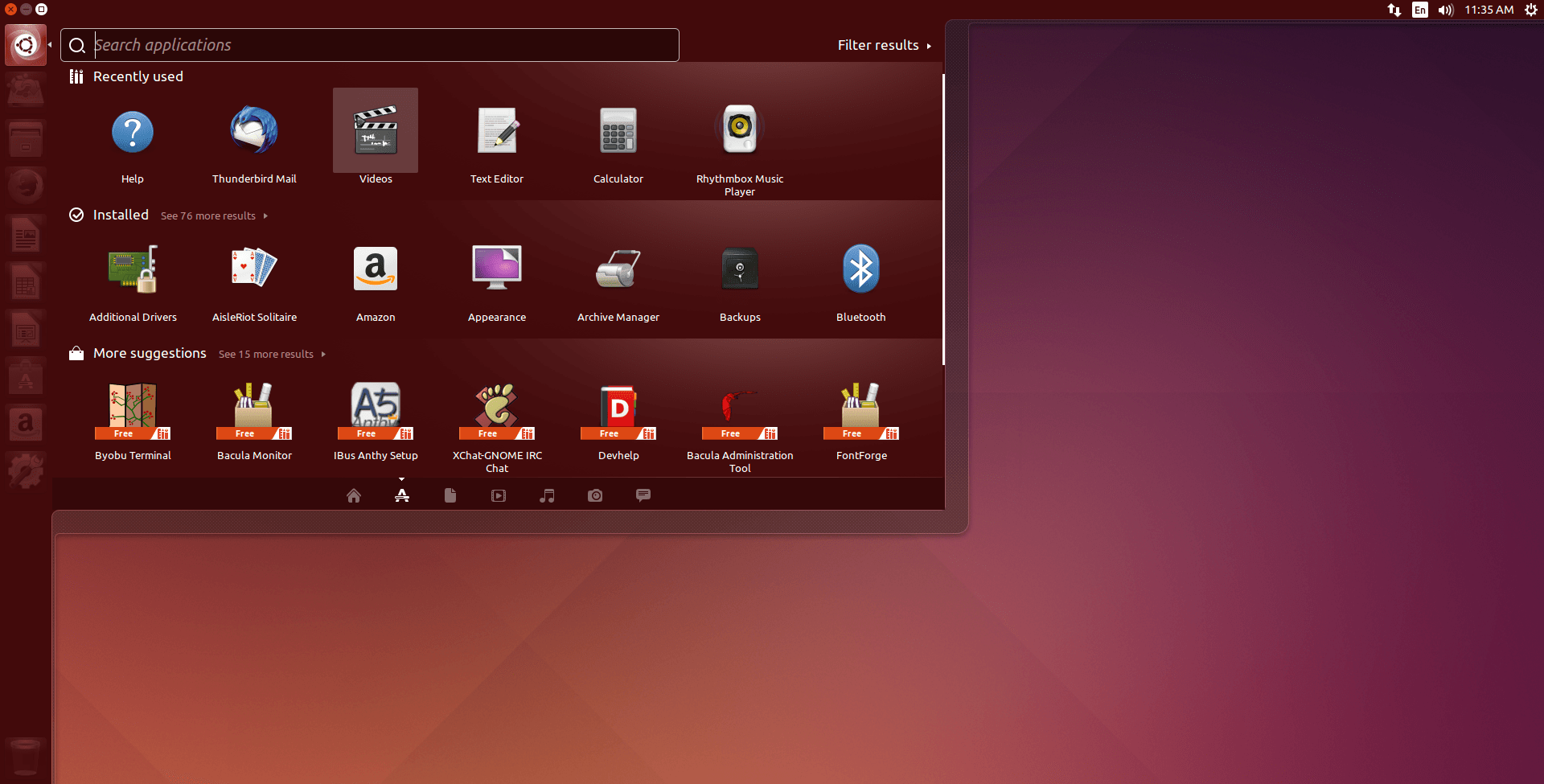

UBUNTU COPYQ INSTALL
On Debian unstable, Debian 10+, Ubuntu 18.04+ and later derivatives can install stable version from official repositories: sudo apt install copyq copyq-plugins and copyq-doc is splitted out and can be installed independently. CopyQ monitors system clipboard and saves its content in customized tabs. In fact, those keystrokes were recruited a long time before graphical shells were invented, back when a teletype (TTY) was a physical thing. On OS X, you can use Homebrew to install the app. Ctrl+C and Ctrl+V were allocated functions long before copying and pasting were ever thought of. In some places where, for some weird reason ( looking at you Atlassian ), ctrl+shift+v doesnt work, one could use this tool: CopyQ and then add a.

Once our newcomer opens a terminal window and tries to copy and paste at the Bash shell command prompt, that all changes. They use the keystrokes from muscle memory and get on with their work. Ctrl+C copies highlighted text and Ctrl+V pastes it at the cursor. Our newcomer to Linux probably doesn't even think about the fact that these conventions have been carried through to these applications. Those very same keystrokes work in most Linux graphical applications, such as the editor gedit or the LibreOffice office suite. In Windows, you use Ctrl+C to copy a section of highlighted text and Ctrl+V to paste it.

When people use a Linux computer for the first few times, whether they come from the Windows or the macOS worlds, they are often confounded when trying to copy and paste within a terminal window. Copying and pasting text is a staple part of using a computer.


 0 kommentar(er)
0 kommentar(er)
